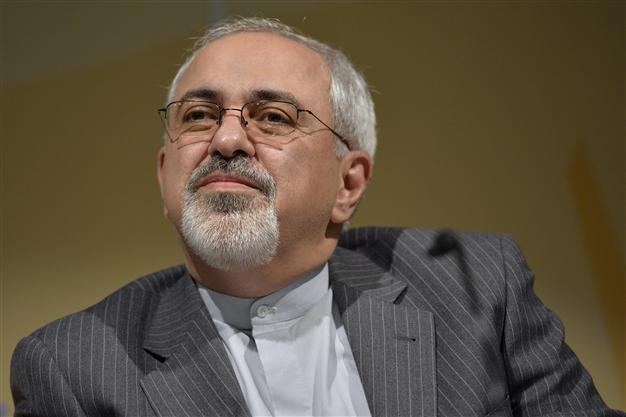Iran FM says Israel seeks to undermine nuke talks
TEHRAN - The Associated Press

Foreign Minister Zarif said the Israeli comments reflected ‘frustration.’ AP photo
Iran's foreign minister on Friday accused Israel of trying to undermine what he described as progress in Tehran's nuclear talks with world powers.
The negotiations - which ended in Geneva on an upbeat note this week with Western and Iranian negotiators announcing a follow-up round early next month - are meant to reduce fears that Tehran is seeking a nuclear weapon.
Iran denies it's pursuing an atomic bomb, insisting its nuclear program is for peaceful purposes only, and has resisted incentives and tough penalties aimed at curbing its activities.
The talks that ended Wednesday in Geneva managed to overcome months of deadlock and get negotiations going again between Iran and the five permanent U.N. Security Council members and Germany.
Since moderate Iranian President Hassan Rouhani took office in August, senior officials from Rouhani on down have pledged to meet international concerns in exchange for an easing of crippling economic sanctions.
On Friday, Iran's top representative in the talks, Foreign Minister Mohammed Javad Zarif, posted on his Facebook page that "there is a high possibility the talks would be disturbed through various efforts" on the part of Israel.
Zarif said these efforts reflect Israel's "frustration and warmongering."
Zarif did not elaborate but he was likely referring to Israeli appeals to the international community to maintain firm pressure on Tehran.
Israel, which considers a nuclear-armed Iran a threat to its existence because of Tehran's controversial nuclear program, repeated calls for Israel's destruction and ties to the Palestinian militant Hamas group and the Lebanese Hezbollah, has not ruled out a military option against Iran's nuclear facilities.
Ahead of the Geneva talks, Prime Minister Benjamin Netanyahu said Iran was merely trying to buy time and trick the world into dropping tough sanctions against it without making any significant concessions on its nuclear ambitions.
"Iran is willing to give a little and get a lot, if not everything," Netanyahu said. "It would be a historic mistake to lift the pressure now, just before the sanctions reach their goal."
In Paris, French Foreign Minister Laurent Fabius warned against unguarded optimism over the talks, saying "it's too early to draw conclusions" and that any gestures toward Iran should be "prudent," given past difficulties in getting Tehran to provide more information about its nuclear activities.
The comments by Fabius to French legislators on Thursday contrast with more optimistic comments from some other participants at the talks in Geneva. Fabius also said that France "does not confuse appearances with reality.'"
In Tehran, Ayatollah Ahmad Emami Kashani, the leader of Friday prayers, told worshippers that Israel has been trying to portray Islam as an "uncivilized and cruel" religion. He also reiterated denials that Tehran seeks nuclear weapons.
"Iran is not disturbing the security (of the world) at all," said Emami Kashani. "We consider nuclear weapons to be forbidden."
In 2005, Iran's Supreme Leader Ayatollah Ali Khamenei, who has final say on all state matters, banned nuclear weapons in a religious decree.
